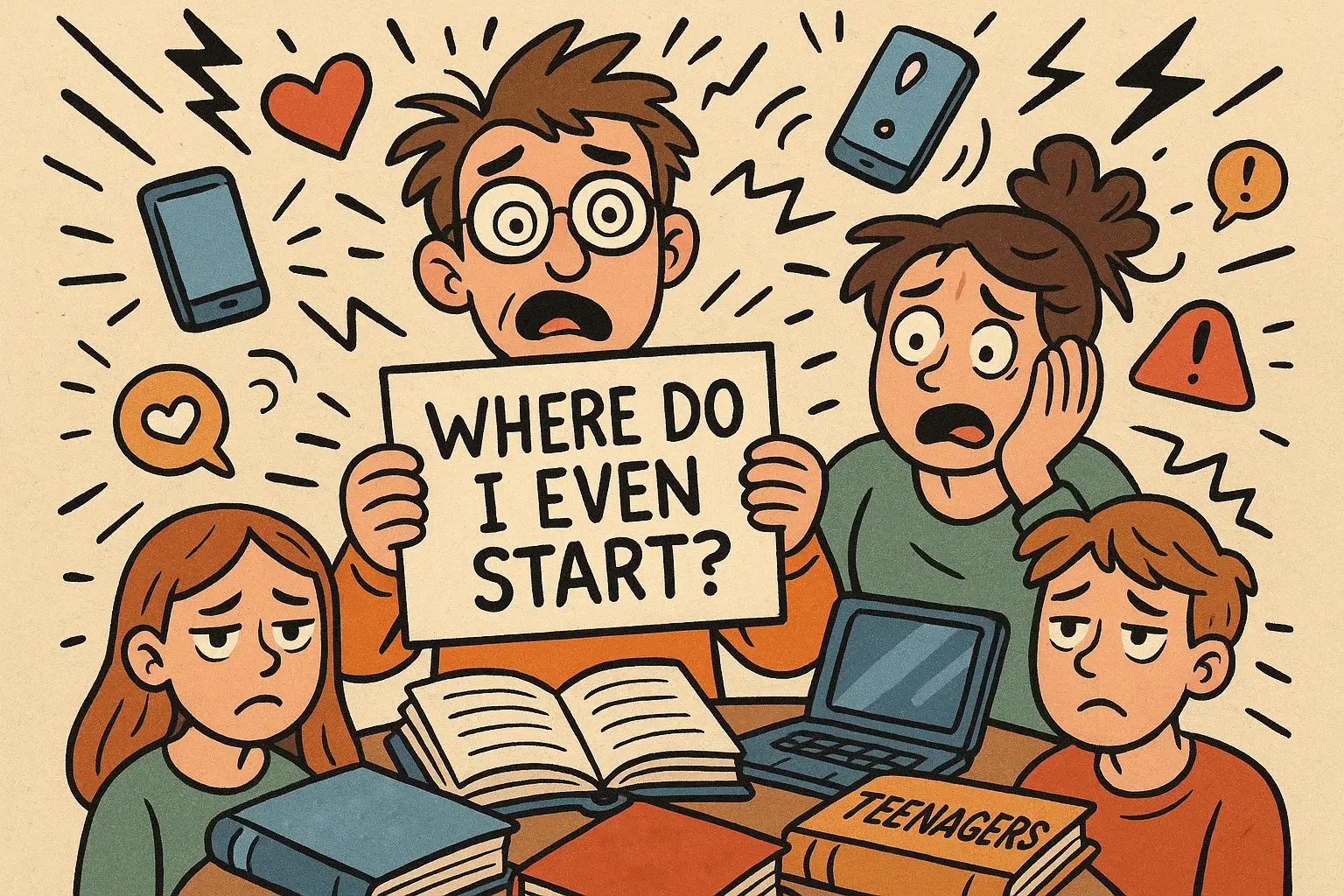Parenting teenagers presents unique challenges that differ significantly from earlier childhood stages. Surveys show that a significant majority of parents feel overwhelmed during their child’s adolescent years, making tailored support essential. The teenage brain is still developing, particularly in areas related to decision-making and impulse control, which may continue maturing into the mid-20s. This comprehensive guide provides curated, evidence-based resources to help you navigate adolescence confidently, fostering healthy relationships while supporting your teen’s development.
Quick Access Resource Guide 📋
| Resource Category | Focus Area | Best For |
| Communication & Emotional Support | Building connection, managing conflict | Daily interactions, emotional regulation |
| Online & Social Media Safety | Digital literacy, cyberbullying prevention | Tech-savvy teens, online concerns |
| Emergency & Crisis Services | Mental health crises, immediate help | Urgent situations, safety concerns |
| Government & Nonprofit Support | Official resources, free programs | Budget-conscious families, evidence-based help |
| Relationship-Building Strategies | Trust, empathy, collaboration | Strengthening family bonds |
| Specialized Topics | Mental health, LGBTQ+, cultural needs | Unique family circumstances |
| Books, Podcasts & Multimedia | Educational content, expert advice | Ongoing learning, flexible formats |
| Personalized Support | Coaching, forums, workshops | Interactive guidance, community connection |
Communication and Emotional Support
Effective parent-teen communication forms the foundation of healthy relationships. Teens who feel heard by their parents tend to engage less in risky behaviors, according to multiple behavioral studies. Key resources include:
Essential Communication Tools:
- The Gottman Institute’s teen communication workshops
- “How to Talk So Teens Will Listen” methodology
- Active listening training programs through local family centers
- Emotion coaching techniques for managing teenage mood swings
Conflict Management Resources:
- De-escalation strategies tailored to the developmental stage of adolescents
- Family meeting frameworks that respect teen autonomy
- Peer mediation training adapted for parent-child relationships
Online and Social Media Safety 🛡️
With teens spending an average of 7 hours daily on screens, digital literacy has become crucial. The Cyberbullying Research Center reports that 37% of teens have been bullied online, making proactive safety measures essential.
Digital Safety Programs:
- Common Sense Media’s family engagement tools
- National Sleep Foundation’s screen time guidelines
- FBI’s Internet Safety resources for families
- Bark monitoring app for concerning content alerts
Building Digital Resilience:
- Teaching critical thinking about online information
- Establishing family media agreements
- Fostering healthy digital citizenship practices
Emergency and Crisis Services
Mental health statistics reveal that 1 in 5 teens experience a major depressive episode. Having immediate access to crisis resources can be life-saving.
Critical Hotlines:
- National Suicide Prevention Lifeline: 988
- Crisis Text Line: Text HOME to 741741
- SAMHSA National Helpline: 1-800-662-HELP
- Trevor Project (LGBTQ+ youth): 1-866-488-7386
Local Emergency Resources:
- School-based crisis intervention teams
- Community mental health center emergency services
- Pediatric emergency departments with psychiatric support
Government and Nonprofit Support
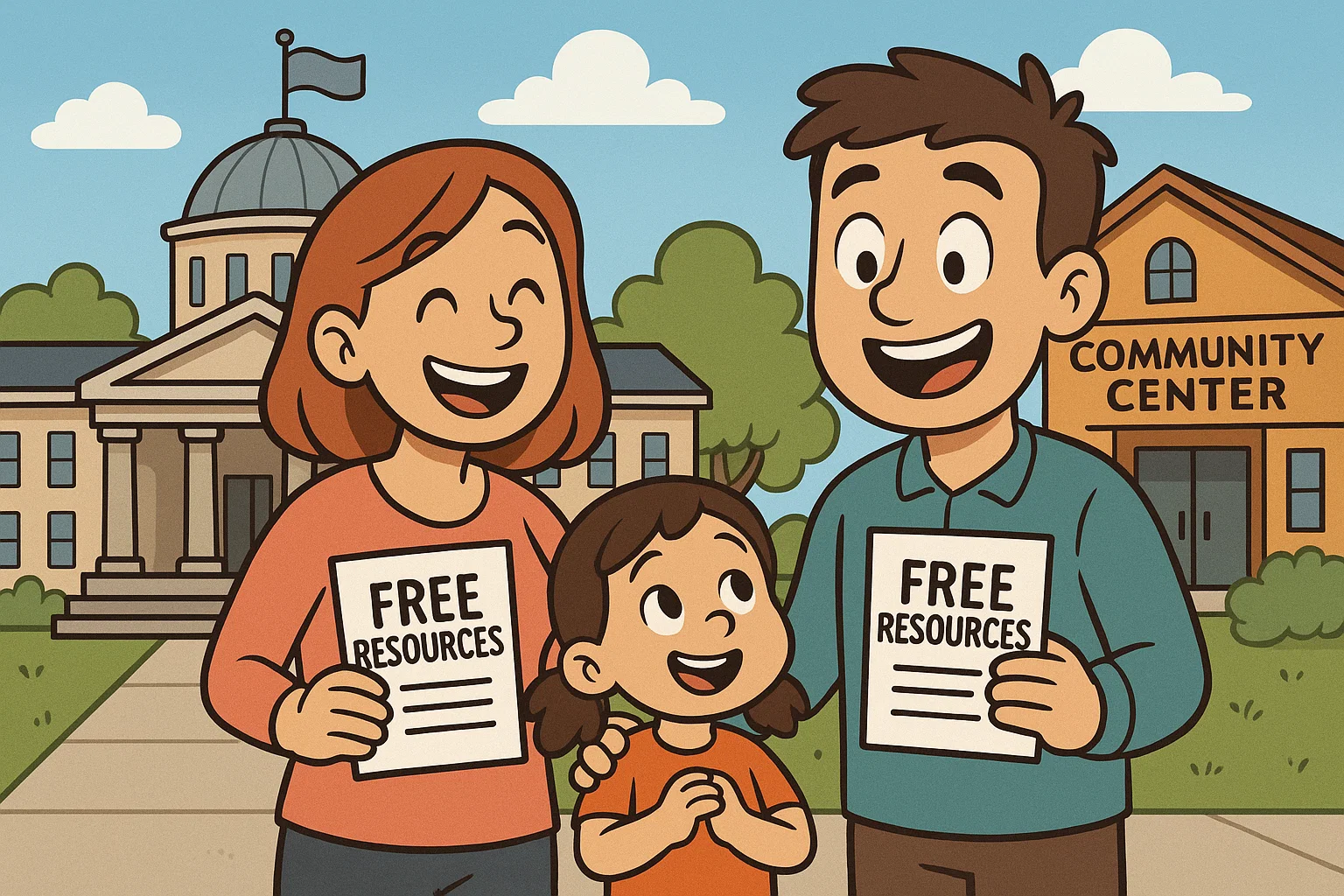
Federal and state agencies provide extensive, research-backed parenting resources at no cost. These materials are typically grounded in evidence-based approaches and reviewed for reliability.
CDC and Public Health Publications
The Centers for Disease Control and Prevention offers comprehensive teen development resources based on longitudinal studies involving thousands of families.
Key CDC Resources:
- “Positive Parenting Tips for Healthy Child Development” (ages 12-17)
- Teen dating violence prevention materials
- Adolescent sleep and nutrition guidelines
- Mental health promotion toolkits
National Organizations for Youth Development
SAMHSA (Substance Abuse and Mental Health Services Administration):
- Free family therapy program locators
- Evidence-based prevention program directories
- Parent training modules for addiction prevention
NIDA (National Institute on Drug Abuse):
- “Drug Facts for Teens” educational series
- Family checkup assessment tools
- Science-based prevention strategies
School-Based and Community Services
Local educational institutions serve as vital support networks. Students with engaged families often demonstrate stronger academic performance and social-emotional skills.
Utilizing School Resources:
- Schedule regular meetings with guidance counselors
- Participate in parent-teacher conferences focused on whole-child development
- Access free family workshops offered through school districts
- Connect with parent resource centers for peer support networks
Relationship-Building Strategies 💪
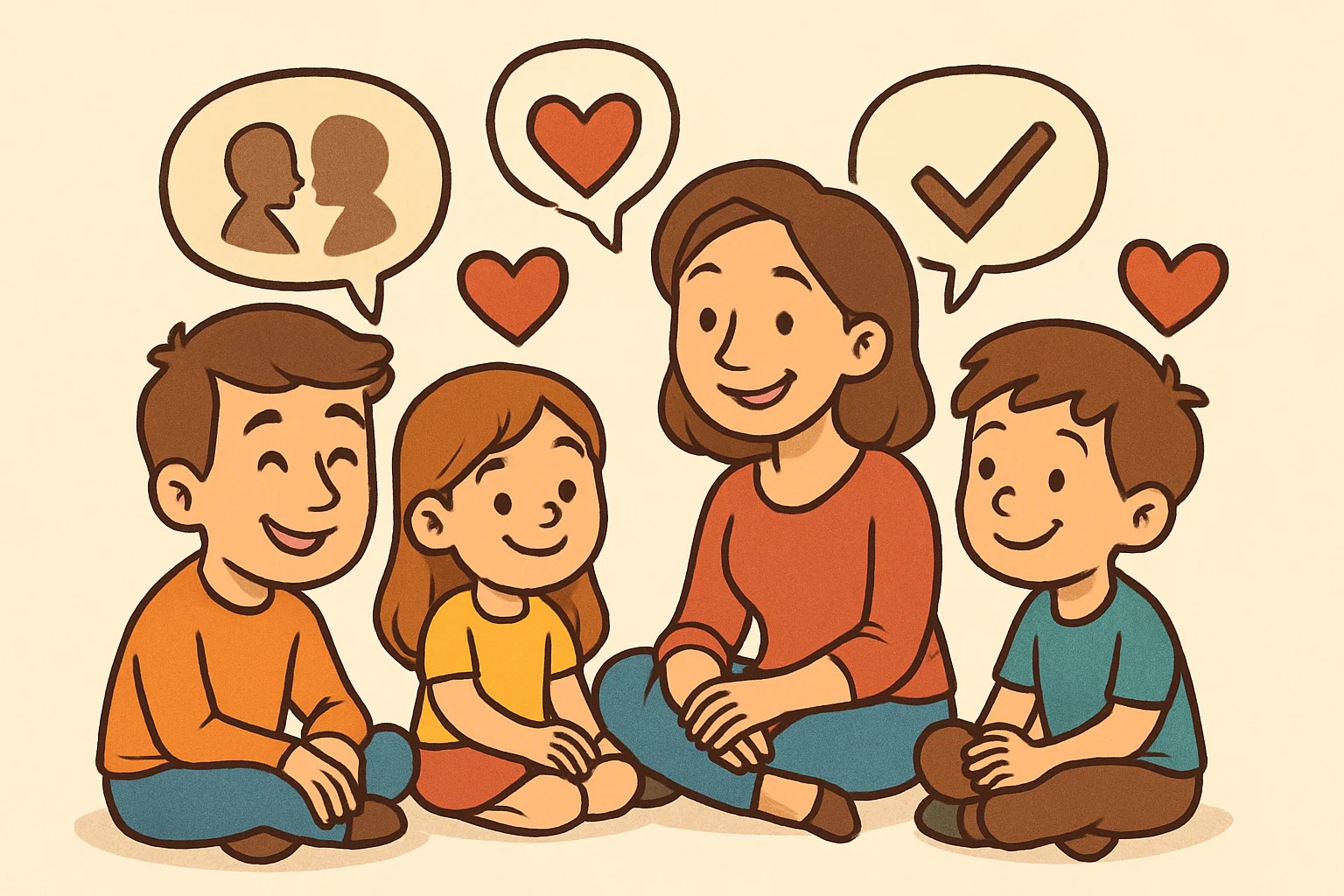
Strong family relationships during adolescence predict better mental health outcomes in adulthood. The Search Institute’s research on developmental assets emphasizes the importance of family support, positive family communication, and clear boundaries.
Programs to Strengthen Family Bonds
Evidence-Based Family Programs:
- Strengthening Families Program (10-14 years)
- Family Life Skills Training
- Teen Triple P (Positive Parenting Program)
- FAST (Families and Schools Together) initiatives
Many programs report noticeable improvements in family communication and functioning within several months of participation.
Conflict Resolution and Discipline Approaches
Modern discipline approaches focus on teaching rather than punishing. Authoritative parenting—combining warmth with clear expectations—is widely recognized as an effective approach for teens.
Effective Discipline Strategies:
- Natural and logical consequences rather than arbitrary punishments
- Collaborative problem-solving techniques
- Restorative justice principles for family conflicts
- Motivational interviewing approaches for behavioral change
Peer-Recommended Parenting Guides
Parent communities consistently recommend resources that offer practical, relatable advice:
Top-Rated Resources:
- “The Self-Driven Child” by William Stixrud and Ned Johnson
- Circle of Security parenting approach
- Love and Logic Institute materials
- Positive Discipline Association resources
Specialized Parenting Topics
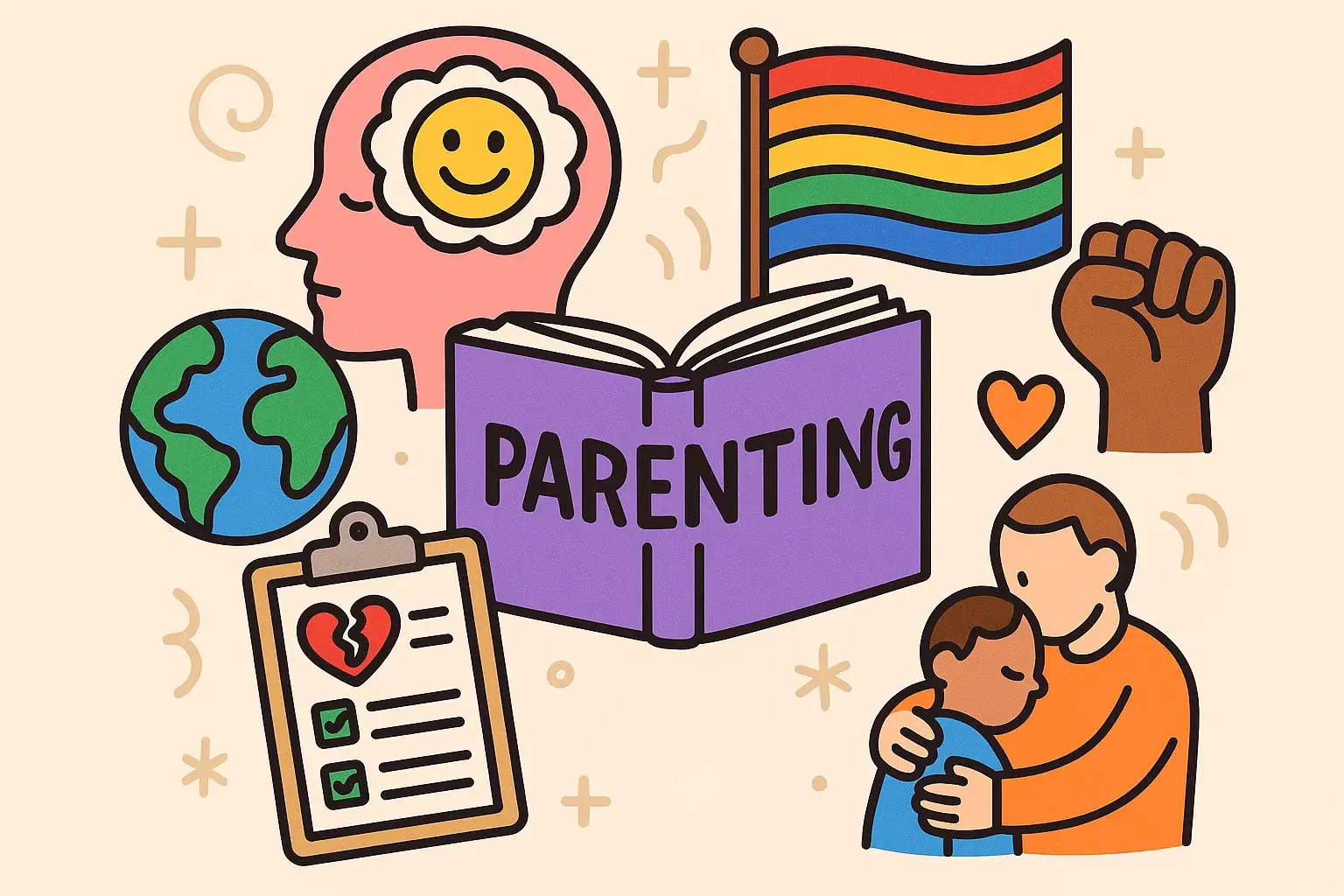
Every family faces unique circumstances requiring specialized support. These resources address specific needs while maintaining evidence-based approaches.
Parenting Teens with Trauma or Mental Health Issues
Trauma-Informed Parenting Programs:
- Trust-Based Relational Intervention (TBRI)
- National Child Traumatic Stress Network resources
- Attachment and Trauma Network support groups
- EMDR International Association family resources
Mental Health Support Channels:
- NAMI (National Alliance on Mental Illness) family programs
- Mental Health First Aid for families
- DBT (Dialectical Behavior Therapy) skills training for parents
Faith-Based and Cultural Parenting Support ✨
Christian Parenting Resources:
- Focus on the Family teen parenting materials
- Group Publishing family ministry resources
- Crown Financial Ministries teen money management
Multicultural Support:
- National Latino Children’s Institute parenting programs
- Asian Mental Health Collective family resources
- Native American parenting wisdom circles
LGBTQ+ Affirming Parenting Resources
According to the Family Acceptance Project, supportive family relationships significantly reduce the risk of suicide among LGBTQ+ teens (Ryan et al., 2010).
Essential resources include:
- PFLAG (Parents, Families, Friends, and Allies of Lesbians and Gays)
- Human Rights Campaign’s “Welcoming Schools” family guide
- Gender Spectrum family resources
- The Family Acceptance Project research and tools
Books, Podcasts, and Multimedia Tools 📚
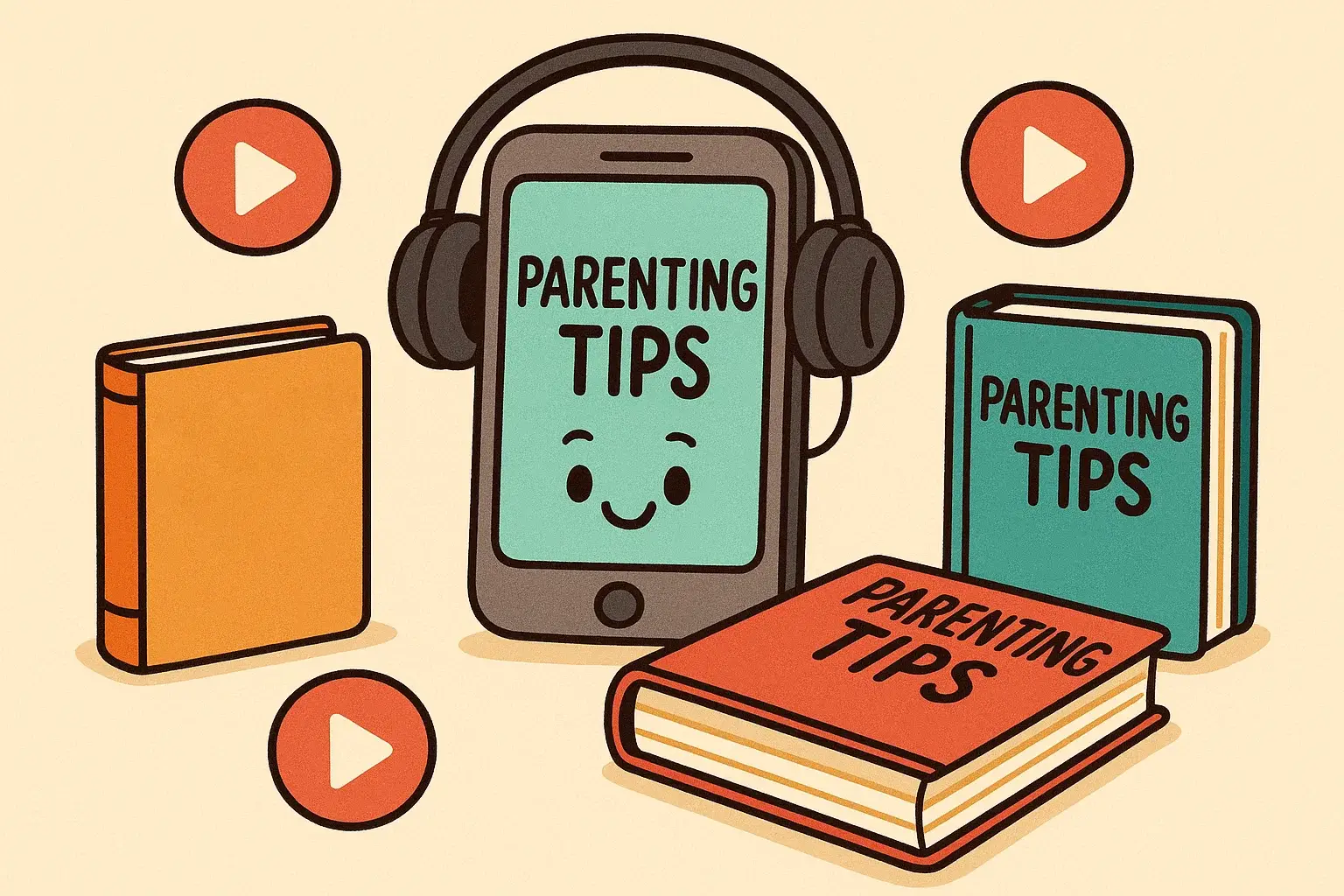
Ongoing education through diverse media formats supports continuous parenting growth and adaptation.
Must-Read Books for Parenting Teens
By Topic Area:
- Communication: “How to Talk So Teens Will Listen” by Adele Faber
- Brain Development: “The Teenage Brain” by Frances Jensen
- Mental Health: “Anxiety Relief for Teens” by Regine Galanti
- Technology: “Screen-Smart Parenting” by Jodi Gold
Podcasts Featuring Parenting Experts
Top-Rated Parenting Podcasts:
- “Unruffled” by Janet Lansbury
- “Brain Matters with Dr. Dan Siegel”
- “Your Parenting Mojo” by Jen Lumanlan
- “Therapy for Black Girls” family episodes
Interactive Apps and Video Series
Educational Apps:
- Circle Home Plus for family screen time management
- Qustodio for digital safety monitoring
- Cozi for family organization and communication
Personalized and Ongoing Support 🤝
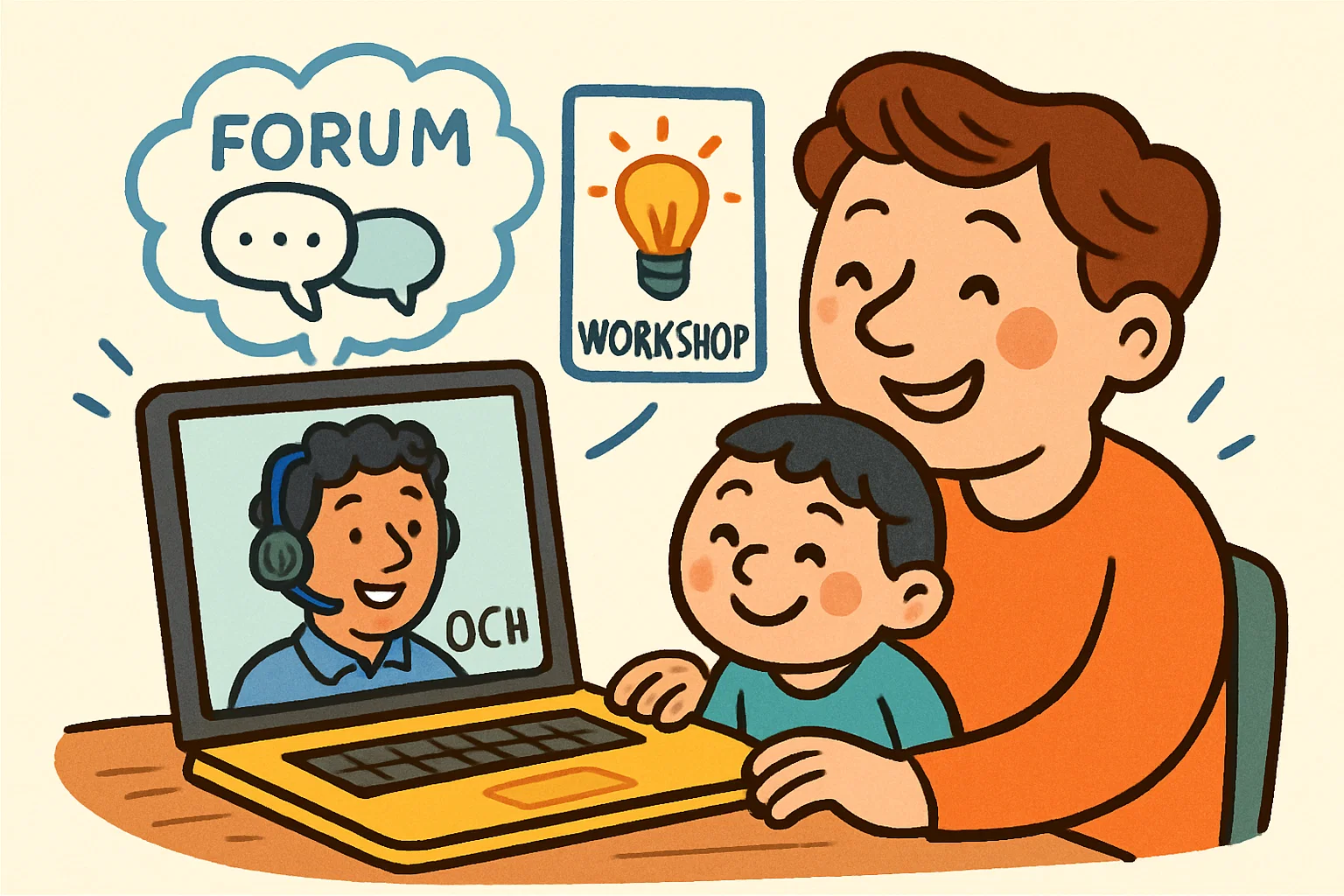
Sustained support through interactive platforms provides accountability and community connection essential for long-term success.
Online Coaching and Parent Forums
Moderated Support Communities:
- Reddit’s r/Parenting community (230k+ members)
- BabyCenter teen parenting forums
- Hand in Hand Parenting support groups
- Local Facebook parenting groups with verified moderators
Email Courses and Printable Toolkits
Structured Learning Programs:
- Positive Parenting Solutions 7-step courses
- Aha! Parenting emotional intelligence series
- Connected Families relationship-building curriculum
Local Workshops and Support Groups
Finding In-Person Support:
- Search “parenting classes near me” through 211.org
- Contact local hospitals for family life education programs
- Check community colleges for non-credit parenting courses
- Utilize religious organizations’ family ministries regardless of affiliation
Building Your Support Network: Start with one resource that resonates with your current needs. Research suggests that parents who engage with multiple support types—combining educational resources with community connections—report 60% higher confidence levels in their parenting abilities.
Remember, seeking support demonstrates strength, not weakness. Every family’s journey through adolescence is unique, but you don’t have to navigate it alone.


